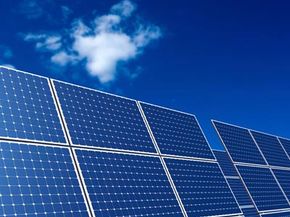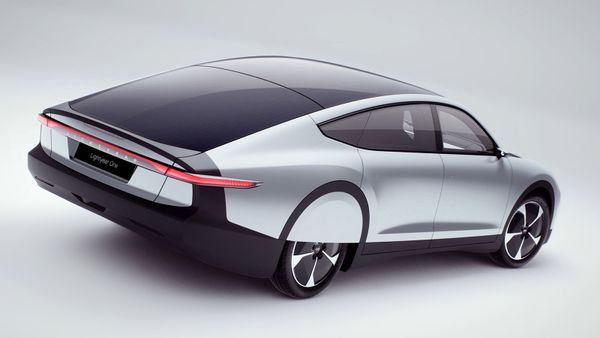Here we are, deep into a new millennium, and cars are still pretty much the same as they were more than a hundred years ago. Sure, we turn a key instead of a crank to start them, and there have been incredible gains in performance
and safety, but every once in a while, you have to ask yourself, where's my flying car?
Advertisement
Okay, so may be a flying car is
too much to ask. But why is it
that the gasoline-powered internal combustion engine, the same device that powered early cars,
is still powering cars today? There's a lot of promise in alternative fuels like ethanol and hydrogen, but there's one power source that would seem to be a no-brainer when it comes to powering cars: The sun.
Taking energy from the sun is a natural process. Plants absorb the sun's rays and store the energy; animals and people eat the plants, taking the energy.
Solar power is the term for using the sun's energy to power a device or an electrical system. Solar panels are made up of a grid of solar cells. These cells collect the sun's energy and convert it into electrical energy (for more information about how solar cells do that, check out How Solar Cells Work). You may have seen solar panels providing electricity for houses, but did you know that solar panels are used to power the International Space Station and some satellites? When solar panels are properly positioned -- on Earth or in space -- they can be very effective.
If energy from the sun is clean and free, why aren't we using it to power cars? Is a solar-powered car a good solution? Keep reading to find out.

